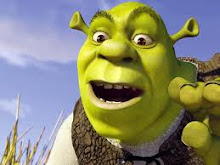Wednesday, November 5, 2008
Tuesday, November 4, 2008
US New President
From his days leading The Harvard Law Review to his presidential campaign, Barack Obama has always run meetings by a particular set of rules.
Everyone contributes; silent lurkers will be interrogated. (He wants to “suck the room of every idea,” said Valerie Jarrett, a close adviser.) Mention a theory and Mr. Obama asks how it translates on the ground. He orchestrates debate, playing participants off each other — and then highlights their areas of agreement. He constantly restates others’ contributions in his own invariably more eloquent words. But when the session ends, his view can remain a mystery, and his ultimate call is sometimes a surprise to everyone who was present.
Those meetings, along with the career they span, provide hints about what sort of president Mr. Obama might be if elected. They suggest a cool deliberator, a fluent communicator, a professor with a hunger for academic expertise but little interest in abstraction. He may be uncomfortable making decisions quickly or abandoning a careful plan. A President Obama would prize consensus, except when he would disregard it. And his lifelong penchant for control would likely translate into a disciplined White House.
Winning the presidency would be the latest in a lifetime of dramatic, self-induced transformations: from a child reared in Indonesia and Hawaii to a member of Chicago’s African-American community; from an atheist to a Christian; from a wonkish academic to the smoothest of politicians; and now, just possibly, from an upstart who eight years ago was crushed in a Congressional race to the first black commander in chief of the only superpower on earth.
Turning deficits into assets — a skill Mr. Obama learned in his 20s as a community organizer — could well be called the motto of his rise. With his literary gifts, he transformed a fatherless childhood into a stirring coming-of-age tale. He used a glamourless state senator’s post as the foundation of his political career. He mobilized young people — never an ideal base, because of thin wallets and historically poor turnout — into an energetic army who in turn enlisted parents and grandparents. And even though his exotic name, Barack Hussein Obama, has spurred false rumors and insinuations about his background and beliefs, he has made it a symbol of his singularity and of America’s possibility.
But in the Oval Office, Mr. Obama would have a new set of deficits. Just 47 years old and only four years into a national political career, he has never run anything larger than his campaign. He began his run for president while he was still getting lost in Washington, a city he does not yet know well. His promises are as vast as his résumé is short, and some of his pledges are competing ones: progressive rule and centrist red-blue fusion; wholesale transformation and down-to-earth pragmatism.
Mr. Obama’s ambition and confidence have long confounded critics and annoyed rivals. In 2006, the still-new United States senator appeared before Washington’s elite at the spring dinner of the storied Gridiron Club, and as tradition dictated, roasted himself. He ticked off the evidence of his popularity: the Democratic convention speech that had won him national celebrity, the best-selling books, the magazine covers.
“Really, what else is there to do?” he said in mock innocence. “Well, I guess I could pass a law or something.”
He passed a few. By the end of the year, he was running for president.
